Many families and individuals across France will be climbing into their cars this weekend, with France’s Fête nationale (or le 14 juillet to most French people) allowing most workers to benefit from a three-day weekend.
READ MORE: Bastille Day: What to expect from France’s Fête nationale in 2023
July 14th will also fall on the second weekend of the school summer holidays, meaning that many families may be heading off for holidays and trips.
According to France’s traffic watchdog, Bison Futé, traffic will be heavy for departures on Thursday, Saturday, and Sunday, as well as Saturday for those in the north-west of the country. Sunday will be the worst day for returns, especially for the Paris region.
Bison Futé also warned that traffic will be heavy on most of France’s major roads going toward the south and toward coastal regions from Thursday to Sunday.
Here is what you can expect on French roads this weekend.
Thursday, July 13th
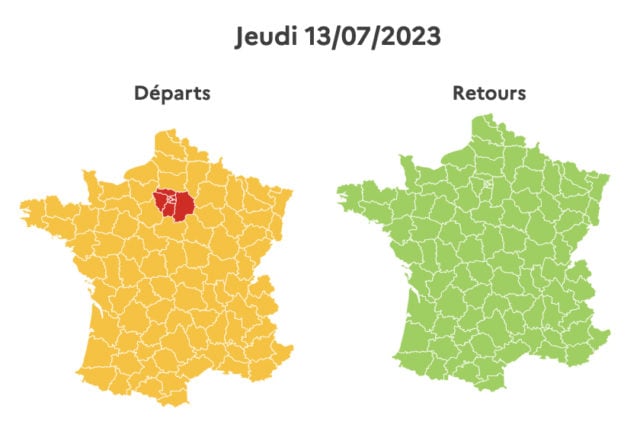
While roads are expected to be clear for returns across the country, the opposite is true for departures. The majority of the country has been marked ‘orange’ for dense traffic, and the Paris region has been marked ‘red’ for very dense traffic.
For those departing, Bison Futé warned that access to Italy via the Mont Blanc tunnel will remain dense until 11pm, and it advises, avoiding:
- the A1 motorway between Paris and Lille between 1pm and 7pm
- the A63 motorway between Bordeaux and Bayonne between 4pm and 9pm
- the A7 motorway between Lyon and Marseille between 1pm and 10pm
- the A9 motorway between Narbonne and Spain between 6pm and 8pm
Friday, July 14th
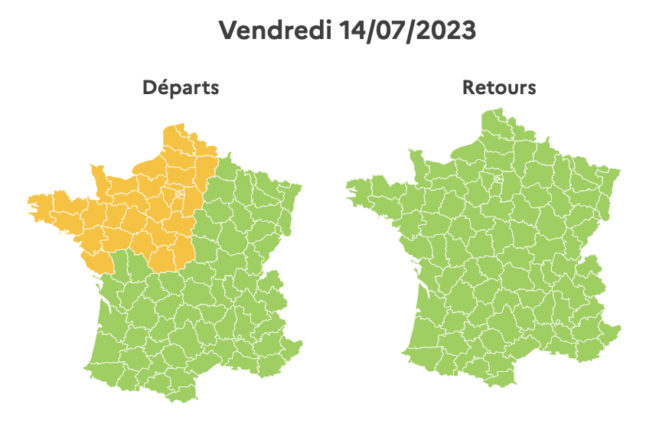
For those departing on Friday, Bison Futé advised that the Mont Blanc tunnel toward Italy will have heavy traffic between 3pm and 7pm. The traffic watchdog also recommended that you:
- leave or cross the Île-de-France region before 6am
- avoid the A13 freeway between Paris and Caen between 9am and 2pm
- avoid the A10 freeway between Orleans and Tours between 7am and 1pm
- avoid the A7 freeway between Lyon and Marseille between 11am and 2pm
READ MORE: MAP: Where have French toll road fees increased the most?
Saturday, July 15th
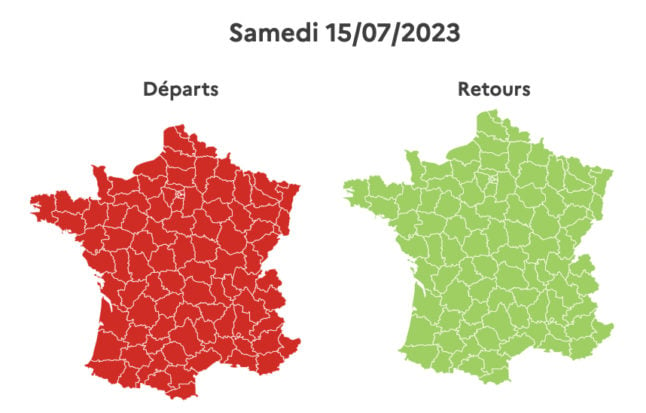
Saturday will be the worst day for departures. It is advised that you avoid the Mont Blanc tunnel between 8am and 6pm due to heavy traffic and that you avoid the following motorways:
- the A31 between Nancy and Luxembourg from 9am to 11am
- the A10 near Bordeaux from 10am to 7pm
- the A63 between Bordeaux and Bayonne between 9am and 7pm
- the A7 between Lyon and Marseille between 8am and 7pm
- the A9 between Orange and Spain from 9am to 11pm
- the A61 between Toulouse and Narbonne from 11am to 1pm
Sunday, July 16th
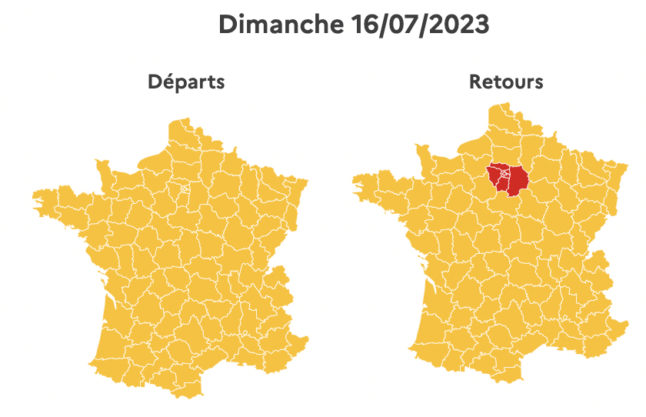
For those departing on Sunday, the majority of the country has been place on the orange traffic alert by Bison Futé.
For departures, you should leave or cross the Paris region prior to 8am and avoid the Mont Blanc tunnel toward Italy between 11am and 7pm.
You should also avoid the following motorways:
- the A63 between Bordeaux and Bayonne between 1pm and 3pm
- the A7 between Lyon and Marseille between 12pm and 9pm
- the A9 between Narbonne and Spain between 4pm and 6pm
- the A61 between Toulouse and Narbonne from 11am to 1pm
For those returning home, you are advised to enter or cross through Île-de-France before 2pm, as well as to avoid the Mont Blanc tunnel toward Italy between 2pm and 10pm.
You should also steer clear of:
- the A10 motorway between Bordeaux and Poitiers between 6pm and 11pm
- the A7 motorway between Marseille and Lyon between 11am and 11pm
- the A71 motorway between Bourges and Orléans from 5pm to 11pm
- the A61 motorway between Narbonne and Toulouse between 4pm and 11pm
- the A43 motorway between Chambéry and Lyon between 6pm and 10pm

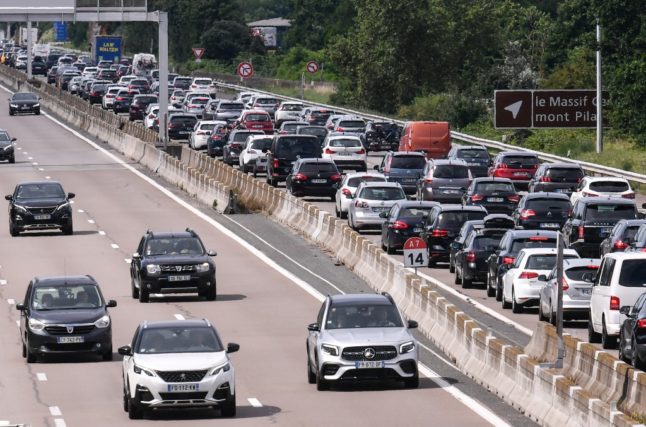
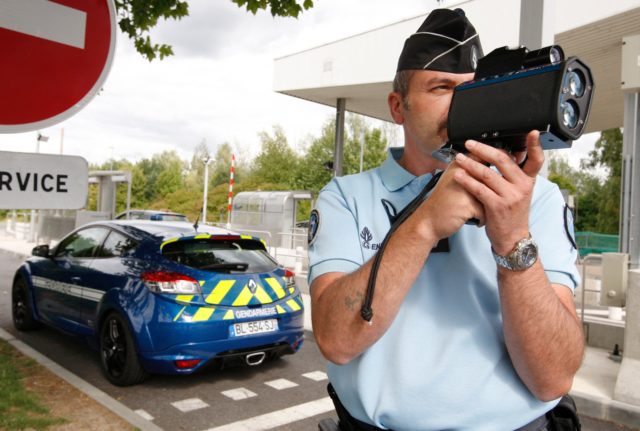
 Please whitelist us to continue reading.
Please whitelist us to continue reading.
Member comments